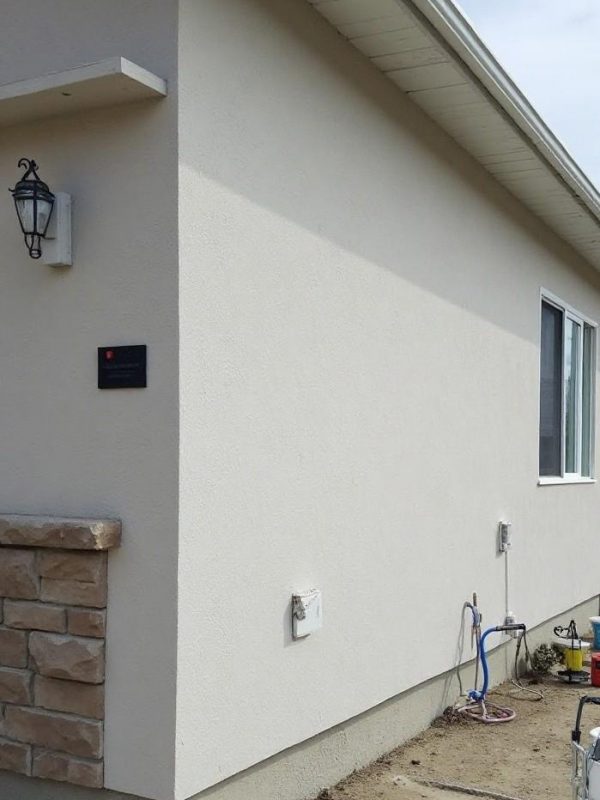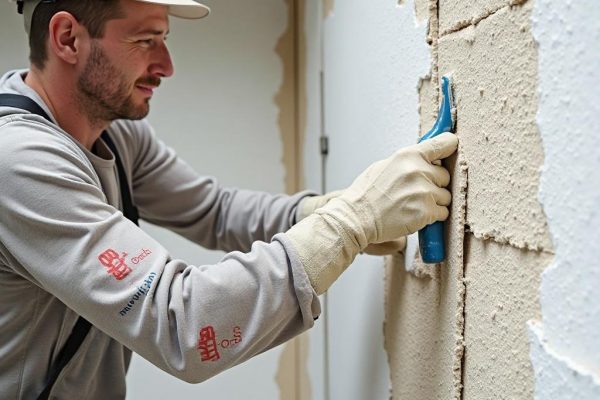
The Three Essential Types of Masonry and Their Unique Characteristics
Introduction
Masonry plays a vital role in construction, offering strength, durability, and aesthetic appeal. As homeowners and builders in Fort Saskatchewan, AB, Canada, consider various materials for their projects, understanding the three essential types of masonry becomes crucial. These types not only differ in their composition but also in their applications and maintenance needs. This article explores masonry in-depth, focusing on each type's unique characteristics while emphasizing the importance of masonry repairs.
Exploring Masonry: The Three Essential Types and Their Unique Characteristics
Masonry involves constructing structures from individual units, which can include bricks, stones, or concrete blocks. Each type of masonry has its distinct properties and uses:
1. Brick Masonry
1.1 What is Brick Masonry?
Brick masonry uses fired clay bricks as the primary building unit. This method has been around for thousands of years and remains popular due to its strength and thermal properties.
1.2 Characteristics of Brick Masonry
- Durability: Bricks are known for their longevity.
- Aesthetic Appeal: Available in various colors and textures.
- Thermal Regulation: Bricks provide insulation against heat and cold.
1.3 Common Uses for Brick Masonry
Brick masonry is often used for walls, pavements, and facades in residential buildings.
1.4 Benefits of Brick Masonry
- Low maintenance requirements
- Resistance to fire
- Eco-friendly options available
1.5 Maintenance Considerations for Brick Masonry
stucco repair techniquesRegular inspections are essential to identify cracks or loose bricks requiring immediate masonry repairs.
2. Stone Masonry
2.1 What is Stone Masonry?
Stone masonry involves using natural stones like granite, limestone, or marble to construct buildings or structures.

2.2 Characteristics of Stone Masonry
- Strength: Natural stone offers unmatched strength.
- Unique Appearance: Each stone has a distinct look that adds character.
2.3 Common Uses for Stone Masonry
Stone masonry is often seen in high-end homes or historical buildings where aesthetics matter.
2.4 Benefits of Stone Masonry
- Extremely durable with a long lifespan
- Low thermal conductivity
2.5 Maintenance Considerations for Stone Masonry
Regular cleaning helps maintain appearance; however, it’s crucial to address any signs of wear immediately through professional masonry repairs.
3. Concrete Block Masonry
3.1 What is Concrete Block Masonry?
Concrete block masonry utilizes large blocks made from concrete mixed with aggregates such as stone or gravel.
3.2 Characteristics of Concrete Block Masonry
- Cost-effective compared to brick or stone
- Good fire resistance
3.3 Common Uses for Concrete Block Masonry
Often used in foundations, retaining walls, or commercial buildings due to its structural capabilities.
3.4 Benefits of Concrete Block Masonry
- Quick installation
- Versatile design possibilities
3.5 Maintenance Considerations for Concrete Block Masonry
Regular checks are essential to catch cracks early; timely masonry repairs can prevent more extensive damage later.
Comparative Analysis: Brick vs Stone vs Concrete Block Masonry
| Feature | Brick | Stone | Concrete Block | |-----------------------------|------------------------|--------------------------|-------------------------| | Durability | High | Very High | Moderate | | Aesthetic Appeal | High | Very High | Moderate | | Cost | Moderate | High | Low | | Thermal Properties | Good | Excellent | Fair | | Maintenance Needs | Low | Medium | Low |
Local Insights into Fort Saskatchewan's Construction Trends
Fort Saskatchewan has a rich history reflected in its architecture; therefore, many homeowners prefer traditional brick or stone masonry over concrete blocks when constructing new structures.
Key Considerations When Choosing Your Type of Masonry
Choosing the right type requires evaluating your project needs:
The Importance of Regular Inspections
Regular inspections help identify potential issues before they become significant problems:
- Cracks
- Moisture intrusion
- Discoloration
Common Issues with Each Type of Masonry
Each type has common issues that may require professional attention:
Brick Issues:
- Cracking mortar joints
- Spalling bricks
Stone Issues:
- Weathering effects
- Settling
Concrete Block Issues:
- Cracks due to settling
- Water damage
FAQs about Exploring Masonry
1. What are the three types of masonry?
The three types are brick masonry, stone masonry, and concrete block masonry.
2. How do I know which type is best for my project?
Consider your budget, desired aesthetic appeal, and structural requirements.
3. Why is regular maintenance important?
It prevents small issues from becoming major problems that require costly repairs.
4. How do I perform basic maintenance on brick?
Inspect regularly for cracks and replace damaged mortar as needed.
5. Can I do my own masonry repairs?
While some minor repairs can be DIY projects, it's often best to consult professionals for significant issues.

6. What should I do if I notice water damage?
Contact a professional immediately to assess the situation and recommend necessary repairs.
Conclusion
Understanding the three essential types of masonry—brick, stone, and concrete block—equips homeowners with knowledge needed for effective decision-making about construction projects in Fort Saskatchewan and beyond. Consistent maintenance paired with timely repairs significantly extends the life span of your structure while preserving its aesthetic appeal.
Whether you’re considering new construction or need assistance with ongoing maintenance like masonry repairs, seeking expert advice will ensure your investment stands strong through time!